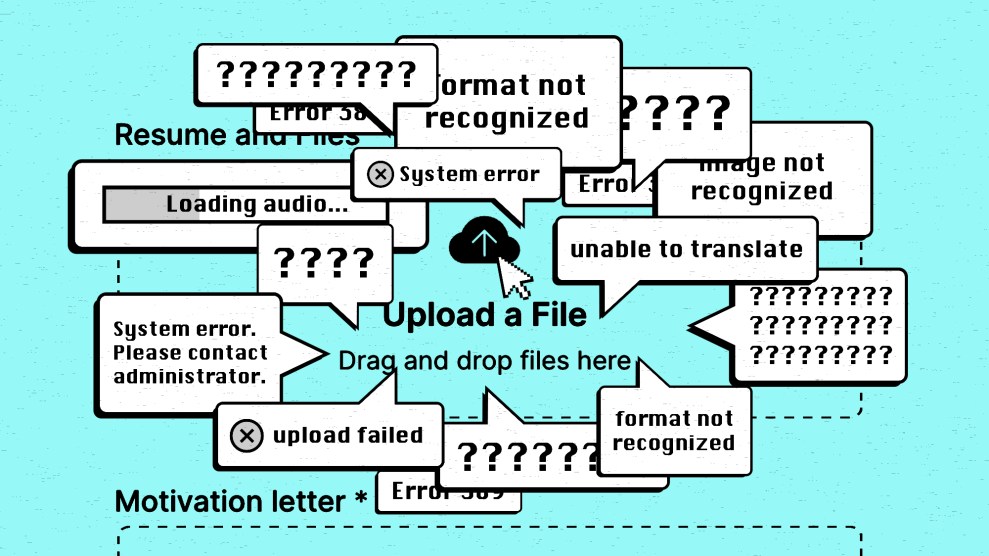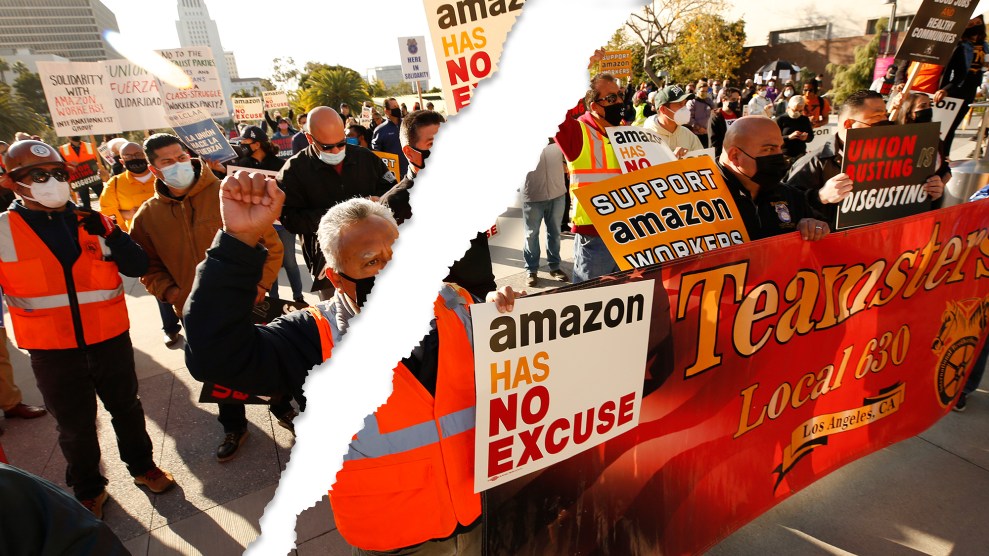
Michigan State Senator Mallory McMorrow holds up the GOP's "Project 2025" book at the Democratic National Convention. She's not a fan.Bill Clark/CQ-Roll Call/Getty
Only some 40 percent of disabled people are employed. But even that low figure is buoyed by federal laws against employment discrimination—a target of Project 2025, the Heritage Foundation’s roadmap for a right-wing transformation of government by a second Trump White House.
A key institution for the just treatment of disabled workers is the Equal Employment Opportunity Commission, which enforces federal bans on workplace discrimination. Viewed with distaste by many on the right since its founding through the 1964 Civil Rights Act, the EEOC obtained nearly $4 million in 2023 for disabled workers subjected to employment discrimination under the Americans with Disabilities Act.
Discrimination plays a significant role, according to Stetson University College of Law professor Robyn Powell, in unemployment among disabled people, who experience it at a rate about double that of people without disabilities.
In response to substantiated complaints, the EEOC can sue companies for discrimination on the basis of disability—among other categories, including race, gender, and age—and may reach a consent decree, where companies agree to changes in policy and practice, sometimes with financial settlements to the affected workers.
“Consent decrees are really critical in any kind of civil rights monitoring or systemic action.”
“Consent decrees occur when there is a big employer where we’re seeing systematic examples of discrimination,” Powell said. “If we can open up employment opportunities by tackling discrimination, it helps everyone.”
The decrees are quicker, cheaper, and sometimes more effective than lawsuits in combating workplace prejudice. But they have a notable enemy in the Heritage Foundation’s pet project.
Jonathan Berry, who was the chief counsel of Trump’s 2016 transition team and held multiple jobs in his administration, writes in Project 2025 that EEOC “should disclaim power to enter into consent decrees that require employer actions” not already explicitly required by law. Back in 2012, during the Obama administration, a Heritage Foundation employee testified before Congress that federal agencies habitually abuse consent decrees—a viewpoint still clear in Project 2025.
“When we look at [Project 2025’s] specifics around the EEOC and consent decrees,” Powell told Mother Jones, “we can see that they really are trying to attack and decimate disability rights.”
The EEOC and DOJ “have really been critical in protecting the rights of people with disabilities,” says Shira Wakschlag, general counsel and senior director of legal advocacy at The Arc, which serves people with developmental and intellectual disabilities. “Consent decrees are really critical in any kind of civil rights monitoring or systemic action.”
Anti-discrimination consent decrees tend to emphasize reform and accountability, with modest settlements compared to potential legal damages. In one representative case, a government contractor that did not provide accommodations to Deaf and hard-of-hearing employees, and that fired workers on medical leave, agreed to a $1 million settlement with updates to policies on medical leave, reasonable accommodation, and managerial training on the Americans with Disabilities Act, including five years’ monitoring for compliance.
Other types of Justice Department consent decrees also come under attack in Project 2025. Wakschlag says that’s very concerning for disability rights—federal consent decrees are used to fight the continuing institutionalization of disabled people, which violates both the ADA and the Supreme Court’s Olmstead ruling.
Conservative attacks on consent decrees are not exactly new. “We’ve certainly seen pushes to either limit, restrict or get rid of consent decrees in agencies in prior administrations,” Wakschlag says. The Trump administration, notably, put a near ban in place on consent decrees between the Department of Justice and police departments that aimed to address police brutality.
If the EEOC’s ability to give consent decrees was diminished or ended, federal anti-discrimination legislation would be dramatically weakened. The agency could still provide technical assistance—such as instruction on how the ADA protects employees and applicants with visual disabilities, diabetes, or epilepsy—but losing the power to push companies to commit to treat disabled workers better, and monitor their progress, will harm disabled workers and strip them of remedies.
“We would see a huge shift in power dynamics,” Powell said, “where we would see that it would really tilt the balance of power more towards employers in these disability discrimination cases.”
















